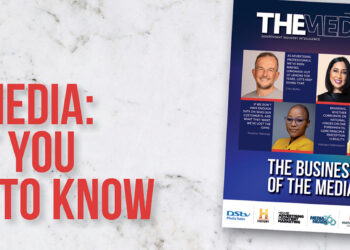CYBERTORIAL* We live in demanding times – everywhere there are uncertainties, unrest, and conflict. Issues such as racism, sexism, colonialism and poverty are threatening to derail an already fragile society.
This is not only the case locally, but globally as well. Factors such as extremism and capitalism, and a whole range of other -isms in between, mean we live in extremely demanding and complex times.
Add to that non-stop, wall-to-wall covering of events as they happen in real time on social media, and the question clearly is: What should the news media’s role be in attempting to make sense of the current state of our planet?
If you care about this question and would like to help search for some answers, Stellenbosch University’s Master’s programme in Journalism is something you should consider… especially as you do not have to resign from your job to pursue such an advanced academic degree.
Stellenbosch’s Postgraduate Journalism Department has designed a Master’s course that can be completed either as a full-time or part-time student.
The Masters in Journalism consists of 180 credits and it is accepted to follow on from an honours degree. The 180 credits are completed according to the candidate’s own planning, module by module (each module consists of 30 credits).
You can do the programme as a full-time student or part-time – in other words, carrying on with your career while doing the course module by module. There are only two seminar weeks per year (in January and June) that are compulsory for all options. Further personal interaction between student and supervisor depends on the student’s availability to be in Stellenbosch, otherwise it is via email/phone or even Skype if necessary.
A normal study year consists of 120 credits, and we recommend that the 180 credits are completed in a structured process over a minimum of two years, with a maximum of four years.
The modules are completed in a structured and methodological way, by first completing the two compulsory modules (2 x 30 credits), after which the electives follow. If your research component is a 90 credit thesis, you elect only one module of 30 credits as an elective – in other words, a 50/50 approach of course work with 3 x 30 credits course work (90 credits) and 1 x 90 credit thesis. If you want to do two electives (2 x 30 credits), your research component will be 1 x 60 credit research assignment – in other words 2 compulsory credits (2×30 credits), 2 electives (2×30 credits), and your research assignment of 6 credits to give you 180 credits.
The two compulsory modules are:
- Research Methodology and
- Mass Communication Theory (each 30 credits)
The electives are:
- Media, Democracy and Development;
- Media, Culture and the Information Society;
- Media Ethics;
- Media History;
- Media Management;
- Science and Technology Journalism, and
- Global Journalism (each 30 credits).
What to do:
- Apply by 31 August
- For online applications, go to https://www0.sun.ac.za/pgstudies/
- Contact crozier2@sun.ac.za for details of where the selection test in your region will be written
- For course options: https://www.sun.ac.za/english/faculty/arts/journalism/study-with-us/programmes/masters
- For fees: https://www0.sun.ac.za/pgstudies/fees.html to get exact fees.
Duration of the programme
The programme consists of 180 credits. A normal study year consists of 120 credits. We do not foresee that it will be possible for a student to complete 180 credits within one year, and therefore recommend that modules are completed in a structured process. The university allows four years for a Masters to be completed. We recommend doing the modules one by one in order to work in a structured, methodological (and successful) way. You can do the programme as a full-time student or part-time – in other words, carrying on with your career while doing the course module by module. There are two seminars (January and June) that are compulsory for all options.
*Cybertorial is sponsored content
















